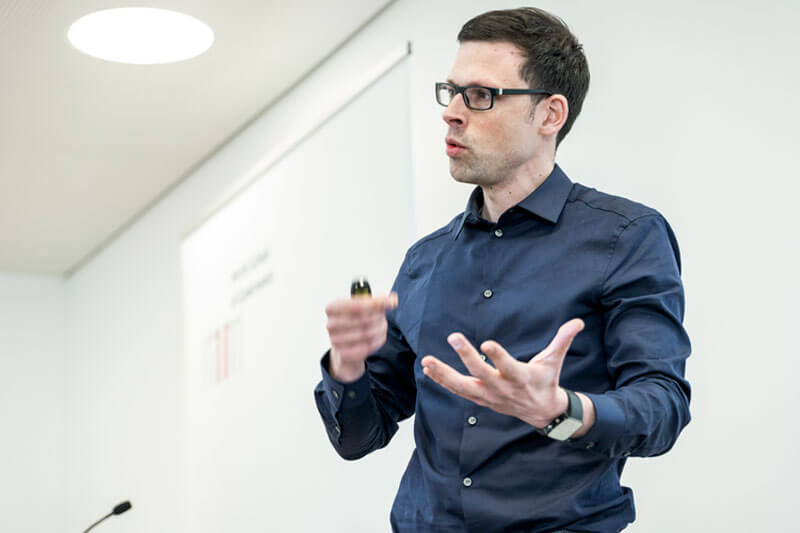
Christian Traxler writes that automatic enrolment with opt-outs could save Germany's pension system.
Fifteen years after Germany enacted sweeping pension reforms, the future of its pension system is once again the subject of controversial debate. Less than half of Germans eligible for tax-subsidised private pension plans, one of the reforms’ cornerstones, have participated. This has foiled efforts to make up for state pension cuts by encouraging private retirement savings.
Responding to the grim outlook of a quickly aging society in 2001, then-Chancellor Gerhard Schröder introduced a gradual decline in public pension benefits. To compensate, individuals (and their employers) should contribute to tax-subsidised individual retirement plans, the so-called “Riester” plans (after the then-Labour Minister Walter Riester), and employment-based pension plans. Given Germans’ penchant for saving and austerity, these new second and third pillars of the retirement system would fill the gap, allowing for a smooth transition to a system of shared responsibility. So the theory went.
Today, many consider this transition to have failed. Riester products have a terrible reputation for being overly complex and expensive, with most of the tax subsidies eaten up by up-front fees charged by banks and insurance agents. As a result, take-up has been rather disappointing: 16.5 million Germans – around 40% of the eligible population – have signed Riester contracts. Many plans are now ‘inactive’ after savers stopped contributing in the aftermath of the financial crisis. More worryingly, they are rarely used by low-income earners, i.e., those who face the most serious risk of old age poverty. CSU leader Horst Seehofer concluded: “The Riester scheme has failed”.
Since then, social democrats and conservatives alike, well aware of the topic’s implications for the upcoming election campaign, have quickly put forth a mélange of proposals, ranging from rolling back Schröder’s benefit cuts to increasing the retirement age. While some are more than simple populism, one idea, which has been a successful element of reforms in other countries, has been missing from the debate: the unexploited potential of “nudging” people to save by automatically enrolling them in pension plans.
The idea of nudges is to influence people’s behaviour by modifying their “choice architecture”, i.e., adjusting seemingly minor institutional arrangements without resorting to economic incentives. This is not a new idea, and policy makers have incorporated nudging into pension systems all over the world. The most powerful nudge is changing a pension scheme’s “default settings”. If employees are automatically enrolled in pension plans at work, and must actively choose to opt out, participation rates rise significantly compared to when they must actively enrol in a plan. Why is that? Well, humans like to stick with the status quo (“status quo bias”) and tend to postpone complex choices into the future (“procrastination”). Thus, only a small fraction of employees actively opts out, just as only a few would actively opt in. Moving from an opt-in to an opt-out system therefore activates many passive savers. This empirical regularity was recently also documented in the UK, where the implementation of automatic enrolment triggered a strong increase in participation in workplace pension, reversing a longstanding downward trend. Until 2014, participation had risen to 14 million, an increase of more than 3 million since 2012, when automatic enrolment began. Only 10 per cent of automatically enrolled workers have opted out. Similar effects have been observed in the US (in the context of “401(k)” retirement plans), Australia, New Zealand, Denmark, and Sweden. But what about Germany?
Germany has so far been resistant to using insight from behavioural sciences – both within the pension system and in public policy more generally. There are several reasons why. First, there is no tradition of evidence-based policy making. To a large extent, policies are shaped by lawyers who are guided by questions of constitutionality and legal doctrine. For them, anticipating and evaluating behavioural consequences of regulations plays a very limited role. Hence, in contrast to the UK, there is no culture of “Test, Learn, Adapt” (as the UK’s Behavioural Insights Team likes to say). It’s more like “negotiate, regulate, then wait and see”.
Second, the German public discourse on nudging has been very contentious and much more hostile than in the economically liberal UK. When Chancellor Angela Merkel installed a mini nudge-unit in the chancellery a year ago, media broadly decried the “paternalistic nanny state”, which was allegedly considering “psycho tricks” to manipulate its citizens. This was illustrated with the shocking idea of changing the default in organ donations from explicit consent to presumed consent with an opt-out, a concept never proposed by this government. Since then, nothing more was heard from the small behavioural team in the Federal Chancellery.
It is thus not at all surprising that traditional policy interventions now dominate the pension reform debate, whereas nudging has received almost zero attention. Ignoring the power of defaults, however, would be a mistake on two counts. First, an opt-out system for employment-based pension plans would significantly strengthen the second pillar of Germany’s pension system, without spending further billions on ineffective tax subsidies that mainly benefit the well-off (who are saving already). Second, opening up to nudging might appeal to political actors: surveys indicate that a vast majority of Germans are in fact very open-minded about nudges. A recent Hertie School and Metallrente study shows that 83% of young adults would welcome the introduction of an opt-out system. In the general population, support rates are around 70%.
Although traditional policy makers are reluctant to listen to evidence, this sort of polling result usually does have an impact on politics – in particular in Berlin’s chancellery. With the debate on pension reform heating up, now is the time for Germany’s reformers to consider behavioural insights – better late than never!
This text was first published by Handelsblatt Global on 29 April 2016.
More about the author
-
Christian Traxler, Professor of Economics
